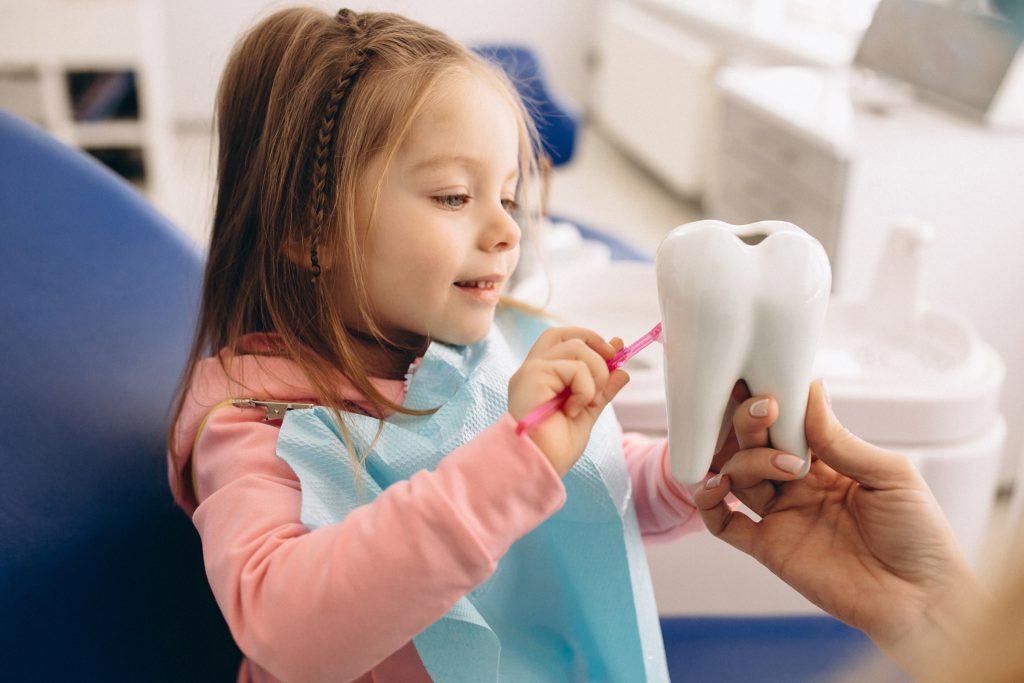- İstanbul: +90 212 830 2885
Pediatric Dentistry (Pedodontics)
Healthy Teeth for Life Starts with a Positive Dental Experience
Protecting our teeth is a lifelong habit that we must instill in children early in life. When children
are equipped with appropriate life skills and trained to make the right dietary choices, we can be
confident that they will enjoy eating, smiling and maintaining oral health throughout their lives. We
ensure that every child who visits Aqua Clinics is treated by a skilled pediatric dentist.

What is Pediatric Dentistry (Pedodontics)?
Pediatric dentistry is a branch of dentistry that aims to protect and improve the deciduous and permanent teeth of children aged 0-12. It aims to heal the children without fear by turning the treatments into games for children and making them interesting. By following the child’s growth and development, they also follow the development of their teeth accordingly. A dental specialist in pediatric dentistry is known as a pedodontist (or pediatric dentist) and is trained in all aspects of pediatric dental problems, behavior management and even child psychology. A pediatric dentist is also trained in the care of patients with special needs, including those with significant medical, physical or mental disabilities. It’s just a myth that kids’ teeth don’t matter as they’re going to fall out anyway. Introducing dentistry to young children at an early age is an important start for the child; How they perceive and respond to dentists early on will affect how they look after dental care when they reach adulthood. By starting dental care at an early age, it can help your child understand the importance of dental care and more easily accept dental visits. We love to see children smile and we constantly strive to create a safe and comfortable environment for children to enjoy their visit.
What’s in Aqua Pediatric Dentistry?
As the Aqua family, the type of dental treatment will vary depending on your child’s dental health. The pediatric dentistry process can range from simple tooth cleaning to dental filling.
Why Should My Child See a Pedodontist?
Our pediatric dentists are experienced in the management of dental care for children and have treated them for many years for a variety of dental problems. The dentist focuses on two key areas of a child’s dental health: Care of milk teeth and preparation for eruption of adult teeth.
Care of Milk Teeth
A pedodontist places great emphasis on protecting milk teeth and preventing tooth decay. They will monitor the growth and development of teeth and jaws. This will help prevent and/or prevent any abnormal habits and plan for correction of deviations from normal growth in the future.
Preparation for Adult Teething
Milk teeth are important for chewing, speech and appearance. They are also important for keeping the space in the jaw for permanent teeth to erupt. If milk teeth decay or are lost too early, adjacent teeth will be dragged into excess or empty space. When adult teeth later develop, they grow crooked, affecting appearance and function.
Common Dental Problems in Children
In our children’s clinic, we treat various dental problems of children. Early Childhood Caries: When a baby actively sucks, the action of facial muscles and saliva results in a natural rinsing action that cleans their teeth. When a baby falls asleep while sucking on a bottle, sucking becomes passive and swallowing slows down, causing juice or milk to build up forming a sticky film (plaque) around the teeth. The sugar in the plaque turns into acid. This results in decalcification and severe decay. Tooth Disorders Related to Thumb Sucking / Pacifier Use: Thumb, finger, and pacifier sucking habits are common in infants and toddlers, but stop on their own by the time the child is 2 to 4 years old. If the habit continues for a long time or intensely, the child’s upper front teeth may begin to tip over towards his lip. The alignment of their teeth, their bite, or the growth of their jaws and bones may be affected. Teeth Grinding: Teeth grinding during sleep is known as nocturnal bruxism. People who grind their teeth while sleeping usually don’t remember it. In adults, this condition is known to be associated with stress and facial pain. In children, this occurs during the teething period. Children often outgrow their nocturnal bruxism and experience no short- or long-term adverse effects.
Frequently Asked Questions
Ideally, you should start brushing your child’s teeth when the first tooth erupts, usually around six months old.
There are many reasons why your child’s teeth may ache. Common causes of toothache include cavities, growing teeth, or improper brushing. Eating too much sugar can cause tooth decay, especially sour foods and sugars that strip tooth enamel. If the pain worsens or persists for a long time, it is highly recommended that you bring your child to the dentist appointment. It is recommended that you bring your child to the first dental appointment at the age of one year or earlier. This will help your child feel comfortable and acclimate to dental exams while also instilling the importance of maintaining good oral hygiene. While it’s true that milk teeth will eventually fall out, it’s important to take good care of them to prevent dental infections or cavities that can hinder the development of new teeth.
